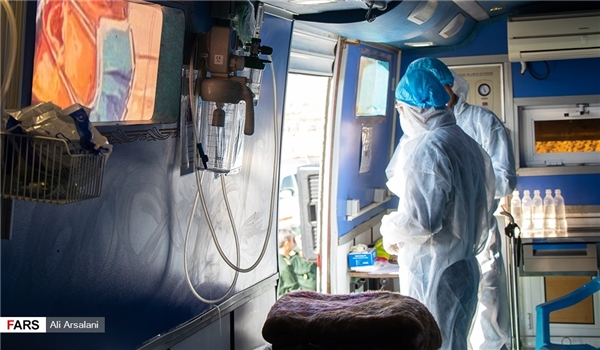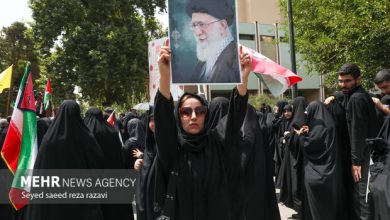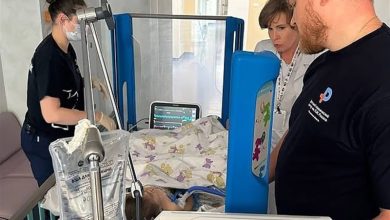Iran Official: 400 Clinical Centers of Basij on Alert to Help Coronavirus Patients

Head of Basij (volunteer forces) Organization’s Medical Society Ebrahim Motevallian announced that 400 clinical centers of Basij are ready to give services to coronavirus patients.
Nearly 7,000 hospital beds have been prepared by Basij to receive coronavirus patients who are recovering, 170,000 Basij forces are rendering service to people infected with the COVID-19 virus and 400 clinical centers of Basij are on alert to help the Health Ministry to improve services to patients, Motevallian told FNA on Monday.
Also, Head of the Women Society of Basij Organization Minou Aslani said that 400,000 masks are being produced every day by the female members of Basij force in small workshops and at homes across the country.
“Also, every day, 20,000 meal portions are prepared for breakfast, lunch and dinner by members of Basij and Jihadi groups for the family members of those people infected with coronavirus,” she added.
The coronavirus COVID-19 is affecting over 180 countries and territories around the world. The virus was first reported in the central Chinese city of Wuhan late last year. It has so far killed more than 14,900 people and infected over 343,000 others globally.
Iran reported on Monday that a total number of 1,812 coronavirus patients have died and 23,049 cases of infection have been identified in the country so far. Meanwhile, 8,376 people have also recovered.
The Iranian foreign ministry declared that despite Washington’s claims of cooperation to transfer drugs to Iran via the new Swiss-launched payment mechanism, the US is troubling the process amid the coronavirus outbreak in the country.
Although US claims that medicines and medical equipment are not under sanctions, they have practically blocked the transfer of Iran’s financial resources in other countries into the Swiss Humanitarian Trade Arrangement (SHTA), Iranian Foreign Ministry Spokesman Seyed Abbas Mousavi said.
As the death toll from the virus surges, Iran intensifies its preventive safety measures. Closures of schools and universities have been extended for the next two weeks.
The government also imposed travel restrictions, specially on Iran’s north, which is among the red zones. The country has also adopted strict digital health control procedures at airports to spot possible infections.
Health Minister Saeed Namaki announced earlier this month that a new national mobilization plan would be implemented across the country to fight against the coronavirus epidemic and more effectively treat patients.
Namaki said that the plan will include all the 17,000 health centers and the 9,000 medical and clinical centers in all cities, suburban areas and villages.
He added that the plan will include home quarantine, noting that infected people will receive the necessary medicines and advice, but they are asked to stay at home.
Namaki said that people with a more serious condition will stay at the hospitals, adding that the public places will be disinfected, the entries of infected towns and cities will be controlled to diagnose and quarantine the infected cases.
He added that the necessary equipment and facilities have been provided, expressing the hope that the epidemic would be curbed.
Namaki said that the number of medical laboratories to test coronavirus infection has reached 22, and will increase to 40 soon.
The World Health Organization (WHO) says Iran’s response to the virus has so far been up to the mark. Still, it says the US sanctions are a big challenge, and Washington would be complicit in the rising death toll in Iran if it would not remove its sanctions.
The World Health Organization has considered priorities in combating coronavirus and Islamic Republic of Iran obeys and follows up priorities as defined by WHO.
The WHO is dispatching separate delegations to all countries.







